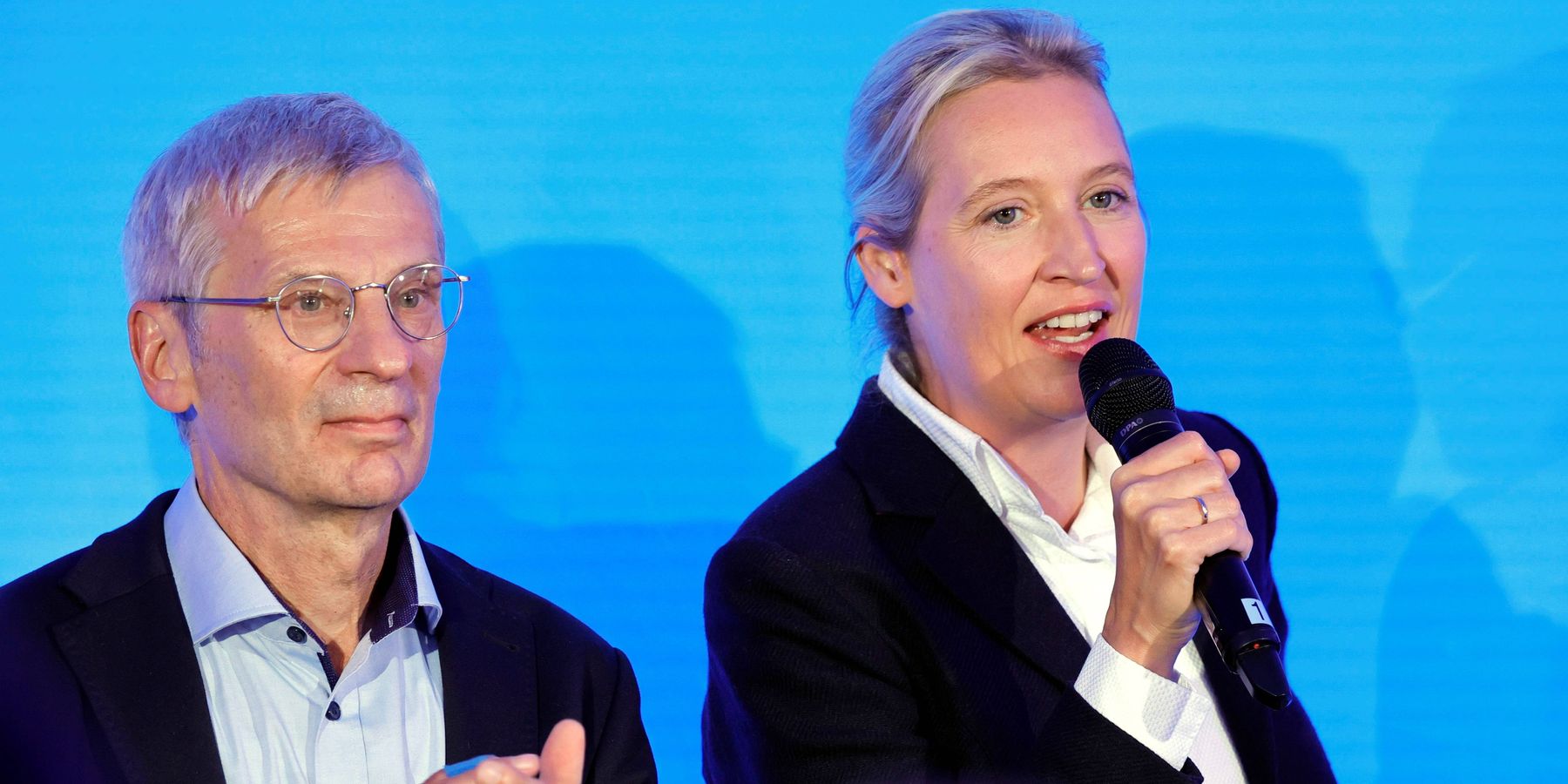German Chancellor Olaf Scholz’s governing Social Democrats barely squeaked by in its stronghold of Brandenburg this weekend, highlighting the increasing influence of the national populist Alternative for Germany on the right and the upstart populist Sahra Wagenknecht Union (BSW) on the left.
The closely watched state election on September 22 saw Scholz’s SPD win 30.9% to edge past AfD at 29.2%. As in the September 1 state elections in Saxony and Thuringia, BSW finished in double digits, in this case in third place with 13.5%, more than the Christian Democrats (CDU) at 12.1%.
These four parties — SPD, AfD, BSW, CDU — alone won seats in the legislature. Two of these four parties oppose German military aid for Ukraine. The SPD, BSW and AfD outperformed their results in the last elections (2019), while the CDU fell short, and Greens and the Left (Die Linke) suffered major collapse compared to the previous elections.
This was the third and last state election held this month in the former East Germany and the last state election till next spring. The SPD had much to lose: they have led governing coalitions in Brandenburg for the 34 years since reunification. The incumbent governor (Ministerpräsident) Dietmar Woidke (SPD) has served for 11 years. A defeat in this SPD stronghold would have shaken further the fragile national governing coalition headed by Chancellor Scholz.
The state of Brandenburg, surrounding but not including the capital Berlin, has a much higher profile nationally than Saxony and Thuringia, where elections on September 8 showed striking gains by AfD and BSW, which are both opposed to German military support for Ukraine. In the lead up to the Brandenburg election, the German press has speculated that Scholz might have been forced out by SPD leadership if the party failed to win the Brandenburg election.
In these scenarios, the Defense Minister Boris Pistorius, by far the most popular national SPD figure, would have replaced Scholz at the helm of the SPD, triggering early national elections, otherwise slated for September 2025.
Governor Dietmar Woidke enjoys broad popularity in Brandenburg, and cannily avoided involving Chancellor Olaf Scholz in his successful campaign. Over the last weeks of the contest, with polls showing AfD leading SPD by several points, Woidke mobilized voter support by pledging not to serve again as governor unless SPD finished first.
This high-risk gambit worked, and it also allowed Scholz to avoid a destabilizing impact on his leadership, even though his two coalition partners — Greens and the pro-business Free Democrats — did not win seats in Brandenburg. In an exit poll, 52% of those who said they had voted for SPD said they did so because of Woidke. The huge voter turnout — 72.9% — may also reflect the outpouring of support for Woidke to remain in office.
Woidke could have led a majority coalition (without AfD) without a first-place finish. Furthermore, his come-from-behind victory has perhaps slowed the momentum of AfD and taken pressure off Scholz and the unpopular coalition he leads. However, the weak fourth place showing for the center-right Christian Democrats, which along with the Greens, had been in coalition with Woidke’s SPD in Brandenburg, is a setback for the CDU and its leader Friedrich Merz.
The Greens’ failure to win any seats and the strong third place finish for BSW do not auger well for national coalition building in next year’s federal elections. As has happened in Saxony and Thuringia, the participation of BSW in Brandenburg’s governing coalition seems difficult to avoid. (Together SPD and CDU fall one seat short of a majority.)
The national SPD and its leader Olaf Scholz have won a reprieve, but there is little to rejoice about in these results, given the still quite strong result for AfD. The challenge of forming a coalition in Brandenburg with Wagenknecht’s BSW lies ahead. On September 8, a week after the very weak showing of the SPD in Saxony and Thuringia, Scholz urged a renewed diplomatic effort to end the war in Ukraine.
This could be interpreted as a gesture to help Woidke defend SPD’s leadership in Brandenburg against the two antiwar parties, AfD and BSW. The BSW has made opposition to further military support for Ukraine and opposition to proposed US missile deployments in Germany a condition for their participation in governing coalitions.
- Germany gets a new antiwar party, this time on the left ›
- Populist surge in Germany driven in part by war, economic backlash ›
- Western leader blurts out what was once taboo on Ukraine | Responsible Statecraft ›
- Trump’s February surprise roils German Elections | Responsible Statecraft ›
- German elections reflect dramatic shift from postwar political order | Responsible Statecraft ›
- Does Germany’s ruling coalition have a peace problem? | Responsible Statecraft ›
















